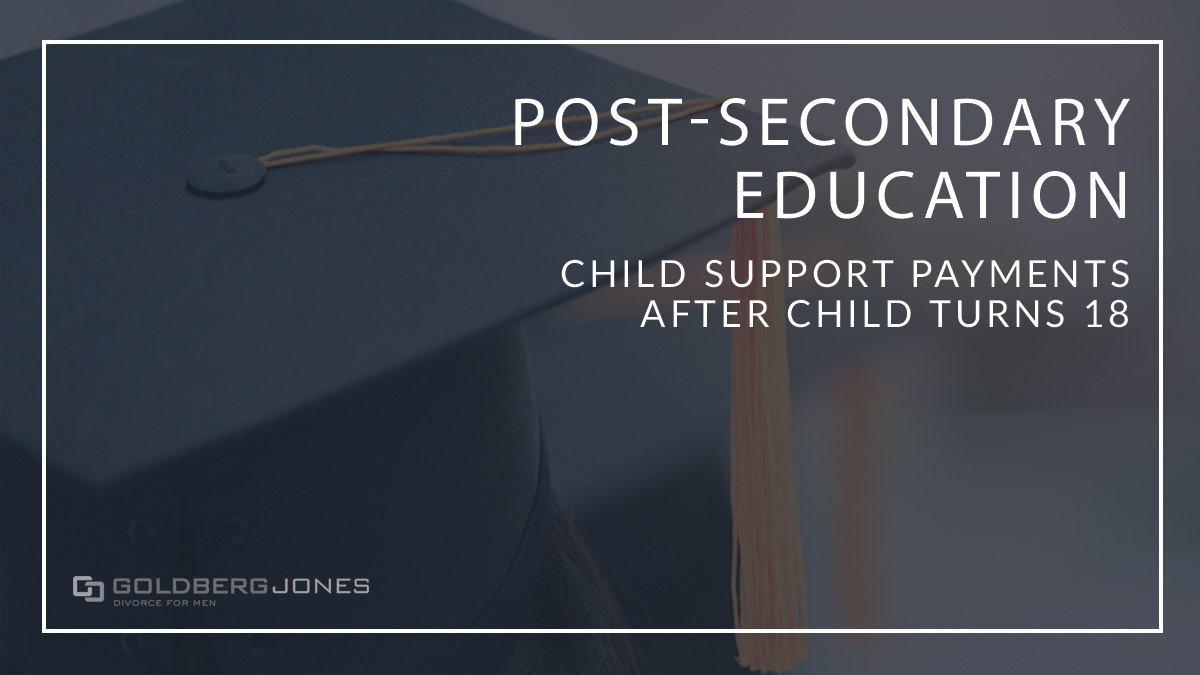
Post-Secondary Education
Can Child Support Continue Past 18?
With the growing cost of college, the thought of financial support suddenly disappearing after a divorce can be daunting. There is some potentially good news.
The courts can and often do order child support to continue past age 18 to help supplement post-secondary education. You must, however, actually have a "child attending school."
Support Payments After The Child Turns 18
What is a "Child Attending School"?
In Oregon, post-secondary support covers various educational endeavors for a “child attending school.” This includes GED programs, four-year universities, community colleges, trade schools, and vocational schools.
The laws for post-secondary support vary from state to state. For instance, in Washington, the age of post-secondary support can extend to the age of 23. Alaska, however, prohibits judges from imposing any continuing educational support.
If you live in Oregon, support for a child attending school is required unless otherwise negotiated.
The court can order a parent to pay child support or to continue the support obligation until that child is 21 years old. Once the child turns 21, regardless if they remain in school, they are no longer eligible for support.
This doesn't mean you can't offer them support, but from a legal standpoint, you're no longer obligated.
What are the Requirements for a Child Attending School?
Oregon has explicit guidelines to meet for a child attending school to qualify for and receive continued support. In order to be eligible:
- The Oregon Child Support Program and the parent making payments must be notified of the intent to continue education before the child’s 18th birthday.
- The child can’t be married or emancipated.
- The child can’t be an active member of the military.
These are the main takeaways of the Oregon State requirements of eligibility. For more details, ORS 107. 108 outlines all the guidelines you must follow.
What is the Oregon Youth Authority?
 If the child is a part of the Oregon Youth Authority, any and all reporting duties of the child attending school will be made by the OYA.
If the child is a part of the Oregon Youth Authority, any and all reporting duties of the child attending school will be made by the OYA.
All payments will be distributed and dispersed by the Department of Justice and given directly to the child. Good cause must be presented to the court to have financial support distributed differently.
Related Reading: Common Child Support Questions Answered
Can You Modify the Existing Child Support Plan?
However, almost all alterations require judicial approval.
As stated, in Oregon, support for a child attending school is mandatory unless otherwise negotiated. If one or both parents want to change the support order, the court makes these amendments. Though possible, this is often difficult.
Only a significant change in financial circumstances prompts a judge to allow modifications to the support order, which is often hard to prove.
You must show:
- Physical custody of the child has changed.
- The needs of the child have changed.
- Number of children involved has changed.
- The income of one or both parents has significantly changed.
If the court orders modifications, it divides the payments between parents much like traditional child support. Once the amount is settled, the support payments are made directly to the child or, in rare cases, directly to the school.
Related Reading: Child Support Modification: What You Need to Know
What If My Child Quits School?
Support for a child attending school is only required if certain criteria are met and maintained. If the child quits school or no longer meets the requirements, the court no longer requires support. Attending school is, obviously, a key component, but there's also more.
For the financial obligation to continue, the child must:
- Enroll in an accredited institution and actively pursue their career goals.
- Remain in good academic standing, as detailed by the definition of the school.
- Provide both parents full access to all academic records and grades.
- Have a course load deemed no less than one-half of what the school determines to be full-time enrollment.
- The time between graduation or completion of school and the beginning of the next scheduled term, semester, or course must not exceed four months.
- No additional breaks have been taken other than those scheduled by the school.
Though it usually ends when a child turns 18 or graduates high school, child support can continue for educational purposes. This applies to college, vocational programs, and more, though the child must meet specific requirements. Laws and eligibility vary from state to state, so research the regulations where you live.
Related Reading: Jurisdiction: Why Where You File Your Case Matters
Recent Posts

Goldberg & Jones, PLLC
111 SW Columbia St. Ste 1150
Portland, OR 97201
(503) 731-8888
(503) 731-9968 (fax)
